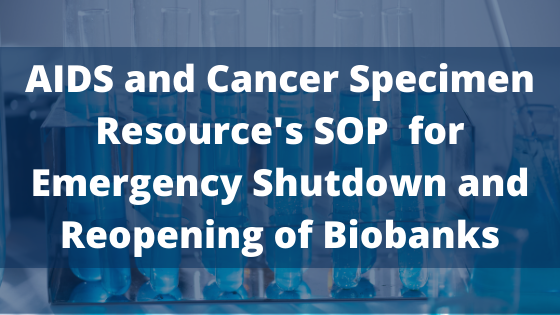Most biobanks operating under Best Practices from either the National Cancer Institute (NCI), the International Society for Biological and Environmental Repositories (ISBER), or the Organization for Economic Cooperation and Development (OECD) have emergency and contingency plans for natural emergencies, such as earthquakes and floods, or other emergencies, including power outages, laboratory hazard injuries, spills, and fires.

Biorepository managers and directors may benefit from having Standard Operating Procedures (SOPs) for handling these local emergencies. Personnel should be knowledgeable about the plans through training, continuing education, accreditation, certification programs, and standards. In addition, institutional risk management exists to mitigate these occurrences. In these situations, shutdowns may last hours or a few days, but not months or over a year as we are experiencing due to an infectious agent such as SARS-CoV-2.
The early weeks of this pandemic stressed contingency plans of biobanks. Unforeseen pressures compelled hurried adjustments and accommodations while dealing with what was seen as a life-threatening situation, and there was fear among biobanking personnel to come to work. Worldwide, the COVID-19 pandemic caused the shutdown of not only biobanks but almost every service supply chain and even country borders.
Read this article about the development of administrative SOP by the AIDS and Cancer Specimen Resource (ACSR) for situations pertaining to epidemics/pandemics.
